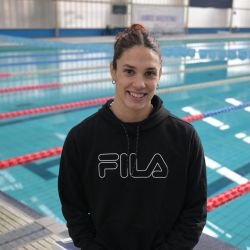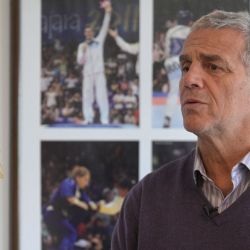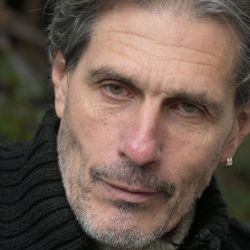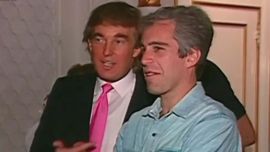Argentine judoka Paula Pareto, an Olympic gold medalist at Rio 2016, made waves when she announced she was giving up her state coaching stipend to share it among struggling athletes.
Her comments last month came after Argentina's austerity-minded government cut the number of judokas it supports from 18 to four.
With just weeks to go until the Paris 2024 Olympics, Argentina's high-level athletes are increasingly worried about their futures due to cost-cutting measures under libertarian President Javier Milei.
"When you are an athlete, results are demanded of you, but each time they give you a little less," Pareto told the TyC Sports channel.
This year, both the body in charge of supporting high-performance athletes, ENARD, and the Sports Undersecretariat have had their budgets frozen at 2023 levels, despite annual inflation of almost 300 percent.
"In a country like Argentina today, where people don't eat, we are aware that there are other priorities," said Diógenes de Urquiza, ENARD’s director since January.
He said the country was focusing financial support on athletes who had qualified or were likely to qualify for Paris.
“I think it’s really difficult for them to complain because we try to give it our all,” he added.
Sports Undersecretary Julio Garro wrote on X that Pareto's remarks "overshadowed and minimised the effort" the government has made.
Urquiza argued that “what sports ought to do today is to keep on working and not bring any problems to the government.”
The nation’s “social problems” are “a lot more serious,” he added.
'Never been easy'
Founded in 2009, ENARD was initially financed with a one-percent tax on mobile phone services. The levy was eliminated in 2017, and the body’s budget has been slowly reduced ever since.
Light years away from the well-paid glory of the nation’s star footballers, some 1,200 Argentine high-level athletes and coaches receive stipends of an average 325,000 pesos a month (around US$350 per month). This is slightly more than the minimum wage of about US$255.
"But we live on that," said Argentine swimmer Macarena Ceballos, who dreams of a "real state policy" for athletes.
Two months before her debut at the Olympic Games, the 28-year-old has struggled to train for the Olympics in the chilly Argentine winter after a pump to heat the pool failed at her training centre in Villa Ballester, on the outskirts of Buenos Aires.
“I’m missing out on three and a half hours this week,” said Ceballos, who was voted best South American swimmer in 2023.
“The pump broke,” she said. "It's the same every winter.”
"Things have never been easy. Yet there have always been medals, Olympic finalists."
She trusts the authorities are working to improve the CENARD, the main training centre for high-performance athletes in this country.
Argentina secured one silver medal and two bronze in the 2021 Olympics in Tokyo.
Since Milei came to power in December last year, his "chainsaw" approach to budget cuts has left the film and culture industry reeling, and soup kitchens with empty pantries.
In his drive to end decades of economic decline, Milei also cut his Cabinet in half and did away with tens of thousands of government jobs.
'After Paris'
Milei believes the private sector and civil society should step in where the government cannot.
"There are very few sports that are in a position to be governed by the mere condition of the market and profit," said Jon Uriarte, a volleyball player who won a bronze medal in Seoul in 1988.
"The network of clubs that supports Argentine sports is unique on the planet,” he said.
According to an official survey from 2021, there are about 12,000 clubs and sports entities in Argentina, which play a crucial social role in underprivileged areas.
“The President has been very clear in his presidential campaign and in the first six months of government: the State is retiring. This has to be solved by civil society, the private sector. How many Argentines can pay their child's club fee?" said Uriate, who feels Argentina needs “its own model.”
Uriarte suggests that the public and private sector could be paired up so “those who profit most from sports give back a little to other places.”
At clubs, he stressed, children can develop such values as punctuality, respect and a sense of effort.
“That experience is essential for an adult life project. If we do not develop it in sports, we won’t develop it elsewhere, and we’re jeopardising future generations."
Walter Pérez, a cyclist who won gold in Beijing 2008 and president of the Argentine Olympic Athletes Commission, acknowledges government efforts to keep up support for those who have qualified for Paris.
But "after Paris, sport in Argentina is not over," he said. "We will have to find ways to get more funding for all sports."
by Tomás Viola, AFP






















Comments